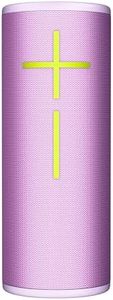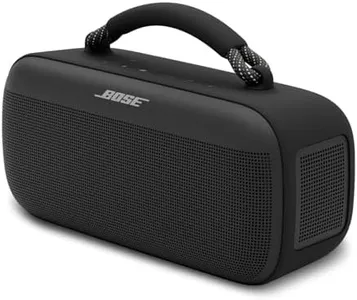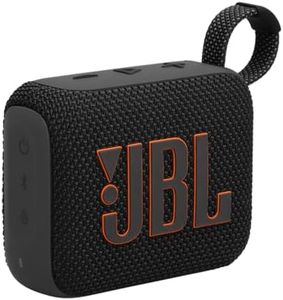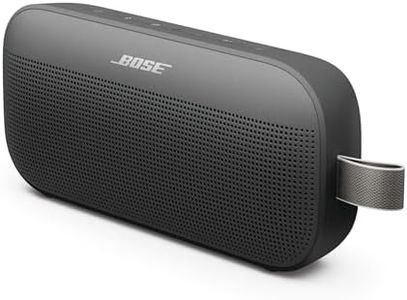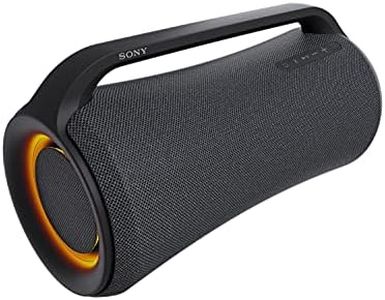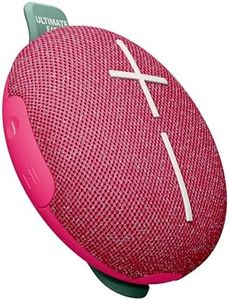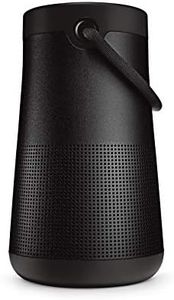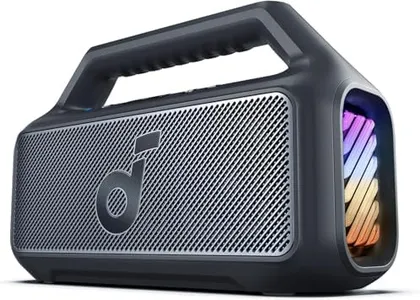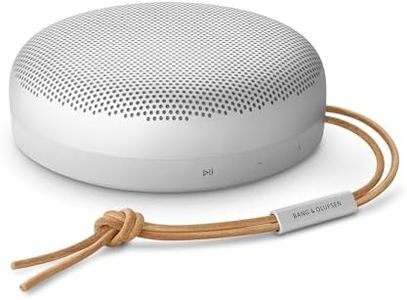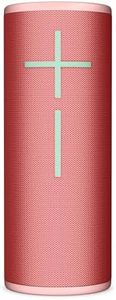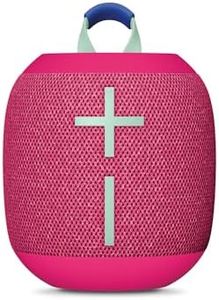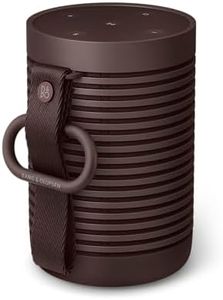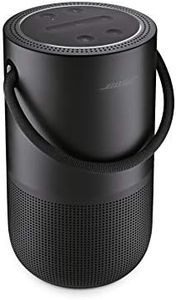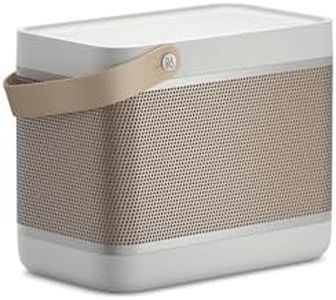We Use CookiesWe use cookies to enhance the security, performance,
functionality and for analytical and promotional activities. By continuing to browse this site you
are agreeing to our privacy policy
10 Best Portable Boat Speaker
From leading brands and best sellers available on the web.By clicking on a link to a third party's website, log data is shared with that third party.
Buying Guide for the Best Portable Boat Speaker
Choosing a portable boat speaker requires a balance of durability, sound quality, and ease of use. Since you'll be using it outdoors and near water, it's important to consider factors beyond just how loud it can play music. Think about your main activities on the boat—are you entertaining groups, chilling solo, or fishing quietly? Knowing how you'll use the speaker will guide you to the right features and ensure you get the best experience, whether you're anchored in a cove or sailing on open water.Waterproof RatingThe waterproof rating tells you how well a speaker can withstand water exposure, which is crucial for use on a boat. Waterproof ratings are usually shown as IPX followed by a number. For example, IPX4 can resist splashes, IPX7 can survive being submerged briefly, and higher numbers like IPX8 can handle even more. If your speaker is likely to get wet or even dropped in the water, aim for at least IPX7. If you'll only use it in sheltered spots, a lower rating might be enough. Think about how rough the conditions might get and choose a rating that matches your boating style.
Battery LifeBattery life measures how long the speaker will play before needing a recharge. Boat trips can be long, so a speaker with short battery life may not last your whole outing. Portable speakers often range from around 6 hours up to 24 hours on a charge. For short, casual trips, a modest battery might do, but if you spend whole days on the water, look for a speaker that promises longer play time. Be sure to check if the speaker's maximum battery life requires using it at lower volume.
Sound Quality and VolumeSound quality relates to how clear, rich, and balanced the music sounds, while volume is about how loud it can get. Boats can be noisy with wind and water, so you want a speaker that can play loud enough to be heard but still sound good. Smaller speakers are often easier to carry but may not have enough bass or volume for open-air environments. If you host parties or love deep sound, go for a larger unit with stronger drivers. If you're just playing music for yourself or a small group, a compact speaker may be enough.
PortabilityPortability considers the size, weight, and shape of the speaker, making it easier to carry and store on your boat. Lightweight and compact designs fit better in bags or cup holders, but may sacrifice some sound quality or battery life. Larger speakers can offer bigger sound, but might be awkward to carry. If space on your boat is limited, prioritize something that fits well and doesn’t get in the way of other gear.
Durability and Build QualityDurability and build quality tell you how tough the speaker is against drops, bumps, and exposure to the elements. Outdoor speakers often come with rubberized casings and reinforced construction to withstand rough use. If you're on a sport or fishing boat where gear gets tossed around, lean toward a rugged speaker. If your boating is more relaxed, you may not need maximum toughness, but some basic resistance to shocks and dust is still a good idea.
Connectivity OptionsConnectivity options include how the speaker connects to your devices, usually through Bluetooth, but sometimes also with AUX jacks or USB. Bluetooth is convenient and works with most phones or tablets, but check for newer versions (like Bluetooth 5.0) for better range and stability. If you want to play music from older devices, look for an AUX input. Some speakers can pair together for stereo sound or have built-in microphones for hands-free calls, so think about what features will make your on-boat experience smoother.
